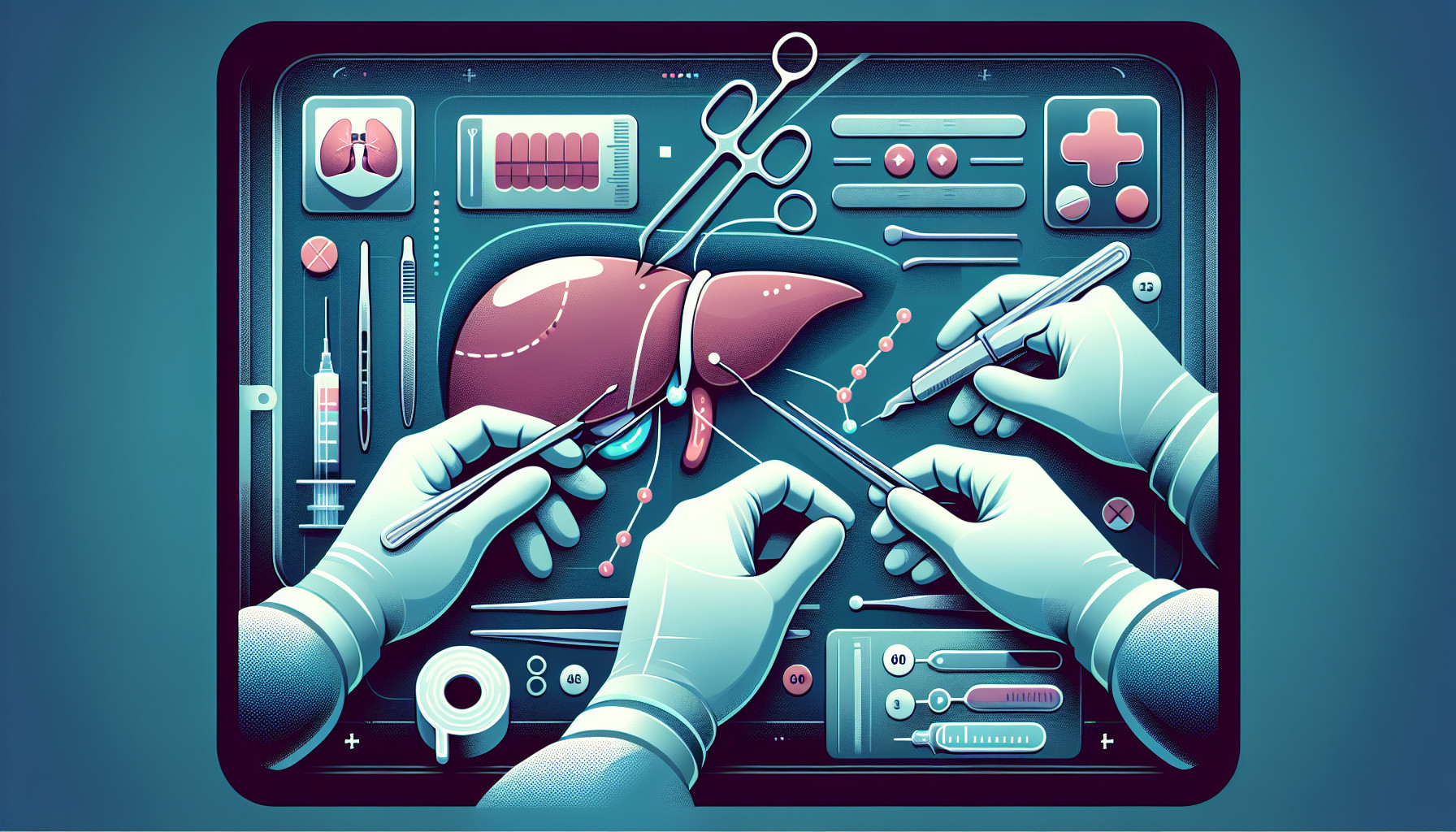Our Summary
This research paper looks at the safety of a specific procedure performed after a liver transplant in children. The procedure is called percutaneous transhepatic liver biopsy (PTLB), which is a method of obtaining a tissue sample from the liver for examination. The researchers looked at data from between 2008 and 2019, and only a small fraction (0.71%) of patients had complications after the procedure. These complications ranged from infection (sepsis), inflammation of the bile ducts (acute cholangitis), respiratory failure due to too much sedation, internal bleeding in the liver (subcapsular hematoma), and a connection between two types of blood vessels in the liver (intrahepatic arterioportal fistula). However, most of these complications were managed without the need for surgery. The research suggests that performing the liver biopsy on its own is safe. But when it is combined with other procedures at the same time, the risk of complications increases.
FAQs
- What is a percutaneous transhepatic liver biopsy (PTLB)?
- What were the most common complications observed after a PTLB?
- Does combining a PTLB with other procedures increase the risk of complications?
Doctor’s Tip
A doctor might tell a patient undergoing a liver biopsy to avoid taking blood-thinning medications, such as aspirin or ibuprofen, for a certain period of time before the procedure to reduce the risk of bleeding. They may also advise the patient to fast for a certain amount of time before the biopsy and to arrange for transportation home afterward, as sedatives are often used during the procedure. Additionally, the doctor may recommend resting and avoiding strenuous activity for a period of time after the biopsy to allow the liver to heal properly.
Suitable For
Liver biopsy is typically recommended for patients who have abnormal liver function tests, unexplained liver disease, suspected liver cancer, or suspected liver infection. It may also be recommended for patients with liver diseases such as hepatitis, cirrhosis, or fatty liver disease to determine the extent of damage to the liver tissue. Additionally, liver biopsy may be recommended for patients who are undergoing evaluation for a liver transplant to assess the health of the liver and determine the need for transplantation.
Timeline
Before the liver biopsy:
- The patient will undergo a physical examination and medical history review.
- Blood tests may be conducted to assess liver function and clotting ability.
- The patient may be asked to stop taking certain medications, especially blood thinners.
- The procedure will be explained to the patient, including potential risks and benefits.
During the liver biopsy:
- The patient will be positioned on their back or side on an examination table.
- The skin over the liver will be cleaned and numbed with a local anesthetic.
- A small incision will be made in the skin, and a biopsy needle will be inserted into the liver to collect a tissue sample.
- The patient may feel pressure or discomfort during the procedure.
- The tissue sample will be sent to a lab for analysis.
After the liver biopsy:
- The patient will be monitored for a few hours to ensure there are no immediate complications.
- Mild pain or discomfort at the biopsy site is common and can be managed with over-the-counter pain medication.
- The patient may be advised to avoid strenuous activities for a few days.
- Results of the biopsy will be discussed with the patient during a follow-up appointment.
Overall, the liver biopsy procedure is generally safe and well-tolerated by patients. However, as with any medical procedure, there is a small risk of complications that should be discussed with the healthcare provider.
What to Ask Your Doctor
- What is the purpose of the liver biopsy procedure?
- What are the potential risks and complications associated with a liver biopsy?
- What steps will be taken to minimize these risks during the procedure?
- How long will the procedure take and what can I expect during and after the biopsy?
- Will I need to make any changes to my medication or diet before the biopsy?
- How will the results of the biopsy be communicated to me and how soon can I expect to receive them?
- What follow-up care will be necessary after the procedure?
- Are there any alternative diagnostic tests or procedures that could be considered instead of a liver biopsy?
- What experience and expertise does the healthcare team have in performing liver biopsies?
- Are there any specific factors about my health or medical history that may affect the safety or effectiveness of the biopsy?
Reference
Authors: Sanada Y, Sakuma Y, Onishi Y, Okada N, Yamada N, Hirata Y, Miyahara G, Katano T, Horiuchi T, Omameuda T, Ogaki K, Otomo S, Lefor AK, Sata N. Journal: Pediatr Transplant. 2021 Jun;25(4):e13997. doi: 10.1111/petr.13997. Epub 2021 Mar 11. PMID: 33704883
